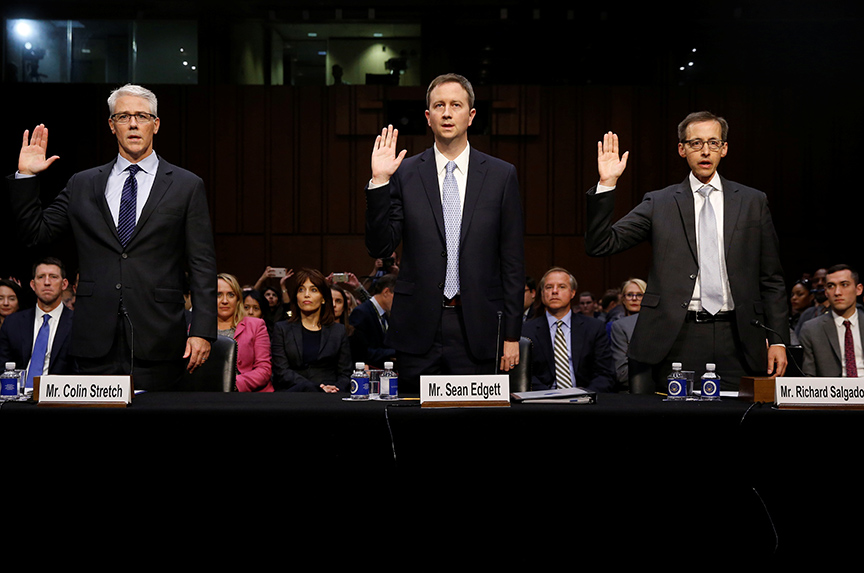 On October 31, Twitter, Facebook, and Google finished the first of two days of public hearings on Capitol Hill on social media’s influence on the 2016 U.S. presidential election. After a hearing in front of the Senate Judiciary Committee’s Subcommittee on Crime and Terrorism, the social media giants testify to the Select Committee on Intelligence of both the Senate and House on November 1. Despite a vague title, the hearings will be laser focused on tools used by Russia to influence the outcome of America’s democratic process.
On October 31, Twitter, Facebook, and Google finished the first of two days of public hearings on Capitol Hill on social media’s influence on the 2016 U.S. presidential election. After a hearing in front of the Senate Judiciary Committee’s Subcommittee on Crime and Terrorism, the social media giants testify to the Select Committee on Intelligence of both the Senate and House on November 1. Despite a vague title, the hearings will be laser focused on tools used by Russia to influence the outcome of America’s democratic process.
As legislators, social media companies, and journalists gather on Capitol Hill, each group in the room must do more to harness opportunity and mitigate vulnerability in a rapidly evolving information environment. Each group’s actions are co-dependent, so the solution starts with a common understanding of the issue at hand.
The questions are likely to be angry; the answers are likely to be unsatisfactory, because they will have to explain not just systemic failures, but apparent indifference. But the most important question may not be asked at all. Senators are certain to demand, “What are you doing about it?”, and the answer will make interesting soundbites; but the question they need to ask is, “What do we need to do about it?” What are the questions which our societies need to answer, so that we can defeat the dangers posed by social platforms, without destroying the platforms themselves?
If we want to defeat the disinformation which has metastasized on social media platforms, we have to think of individuals first. Each person must be more digitally resilient.
Read full article here.
Image: From left: Facebook General Counsel Colin Stretch, Twitter’s acting General Counsel Sean Edgett, and Google's Director of Law Enforcement and Information Security Richard Salgado are sworn in to testify before a US Senate Judiciary Crime and Terrorism Subcommittee hearing on how Russia allegedly used their services to try to sway the 2016 US elections in Washington on October 31. (Reuters/Jonathan Ernst)

